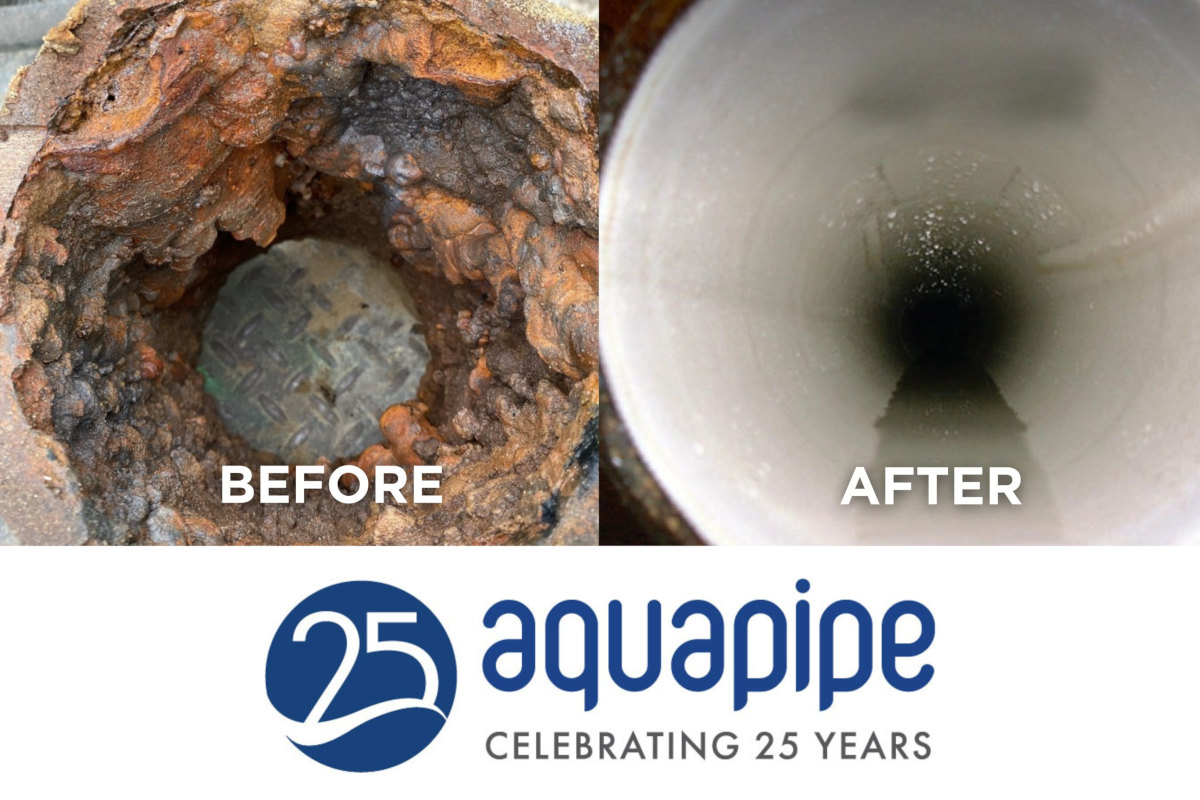
CNAM Awards University of Waterloo Researchers with Two Awards at 2018 CNAM Conference

Dr. Mark Knight accepting the CNAM Pioneer award presented by Pious Maposa, CPA, CGA, MBA, Manager, Asset Planning Infrastructure Planning & Policy Public Works at Halton Region.
The Canadian Network of Asset Managers (CNAM) has awarded their 2018 Asset Manager Pioneer Award to Dr. Mark Knight at the University of Waterloo.
This award honours individuals who have played an integral role in advancing the asset management industry in Canada and celebrates their long-term commitment and unwavering dedication to the asset management industry.
Knight accepted the award on behalf of his fellow researcher colleagues (Drs. Andre Unger in the Department of Earth Sciences, Carl Haas in the Department of Civil and Environmental Engineering, Neil Brisley in the School of Accounting and Finance and Rizwan Younis at CATT), PhD and master’s graduate students at the University of Waterloo, and industry partners (City of Waterloo, City of London, Region of Waterloo, City of Niagara Falls, and City of Cambridge).
“This award would not be possible without our amazing research team and industry partners and financial support provided by our industry partners, the Natural Science Engineering Research Council (NSERC), and the Centre for Advancement of Trenchless Technologies (CATT),” said Knight.
Over the past 10 years, Knight and the team have been working with industry partners to develop innovative water asset management tools that allow water utilities to develop long-term (30 plus years) sustainable financial plans and to use existing utility data to determine inflation rates in water projects.
One key research finding has been that water projects inflation rates can be as high as 6 percent per annum which is two to three times higher than the often used Consumer Price Index (CPI) for long-term financial plans. Knight states that using a low CPI project inflation rate could result in significant future funding shortfalls and the need to dramatically increase water rates to cover the funding shortfall.
Another key research finding is that borrowing to reduce or eliminate the current infrastructure deficit can result in lower user water rates and significant long-term costs savings for water utilities. These cost savings are the results of building programs that will generate significant operational cost savings that are magnitudes greater than the cost of borrowing to fix the infrastructure says Knight. These water systems are complex systems with many feedback loops and non-linear interconnections that are not easy to model or understand, especially when using spreadsheets which is current practices.
The team has developed the first system dynamic models that allows water utilities to model and better understand how these systems behave over the life cycle of 50 to 100 years and to develop logical and defensible long-term financial and infrastructure renovation plans. KPMG in Australia has entered into a partnership with the researchers to bring these tools to Australia and New Zealand. KPMG has recognized that these tools are innovative and can be used to develop defensible five-year user rates and financial plans that need to be submitted to water and power regulators.
“Our current research is implementing machine learning, artificial intelligence, agent-based modelling and game theory into our tools to automate key processes for water utility data importing and data analysis such inflation analysis, the potential for contractor collusion, bidder profiling and the development of defensible cost saving multi-year capital programs,” Knight said. “This is exciting research that we feel will really help water and other utilities in North America and around the globe to develop sustainable water rates and fees while at the same time improve network performance and operation and reduce or eliminate the well-known and reported infrastructure backlog and deficits. We have created tools to actually help utilities do this. This is a win-win-win for everyone…. rate payers, utilities, regulators, and governments.”
If you would like to know more about this innovative research, contact Knight at mark.knight@uwaterloo.ca.




